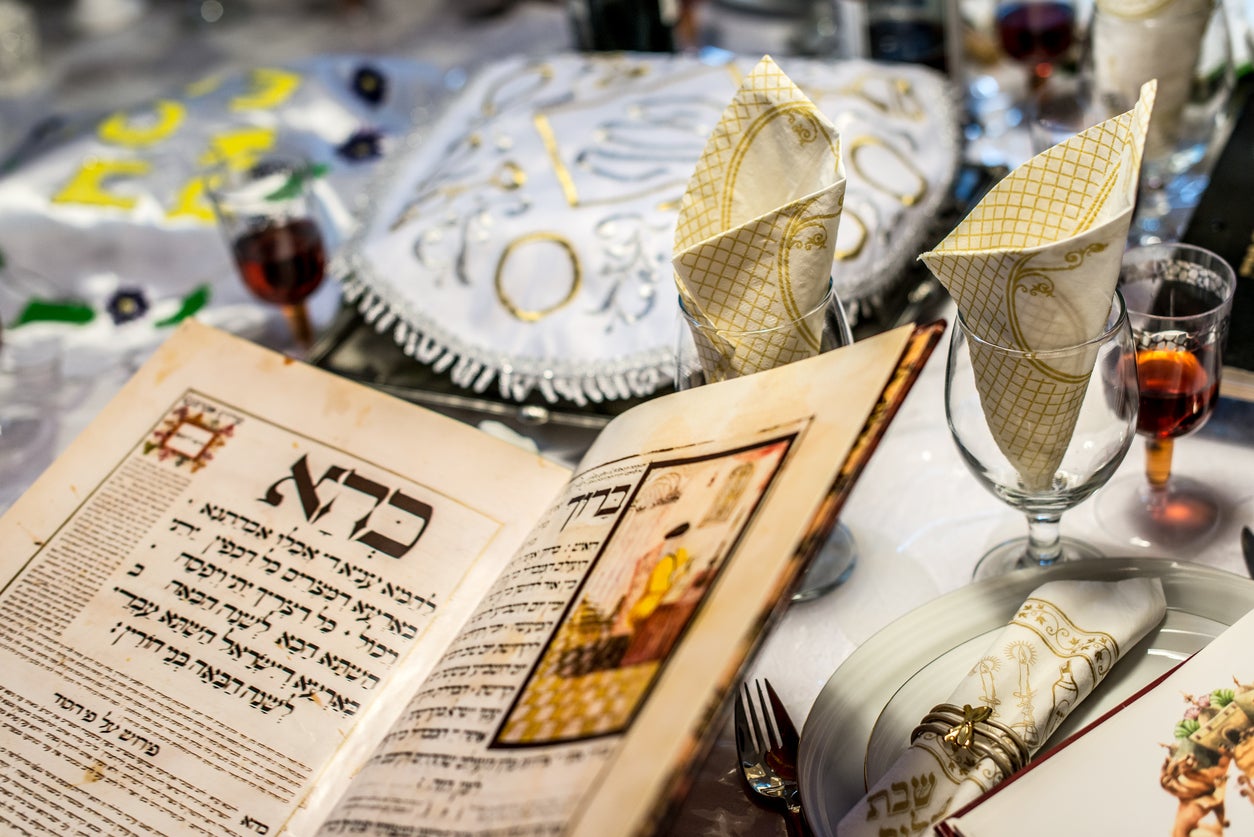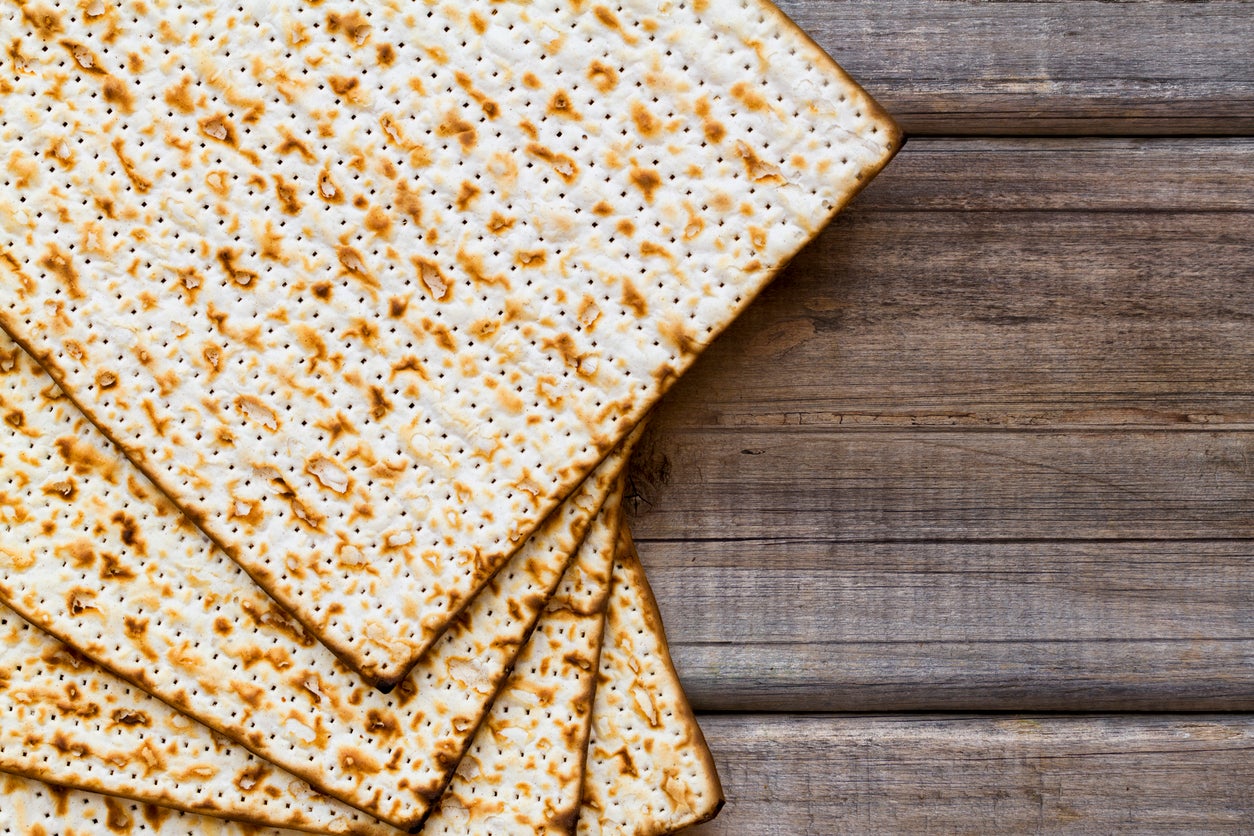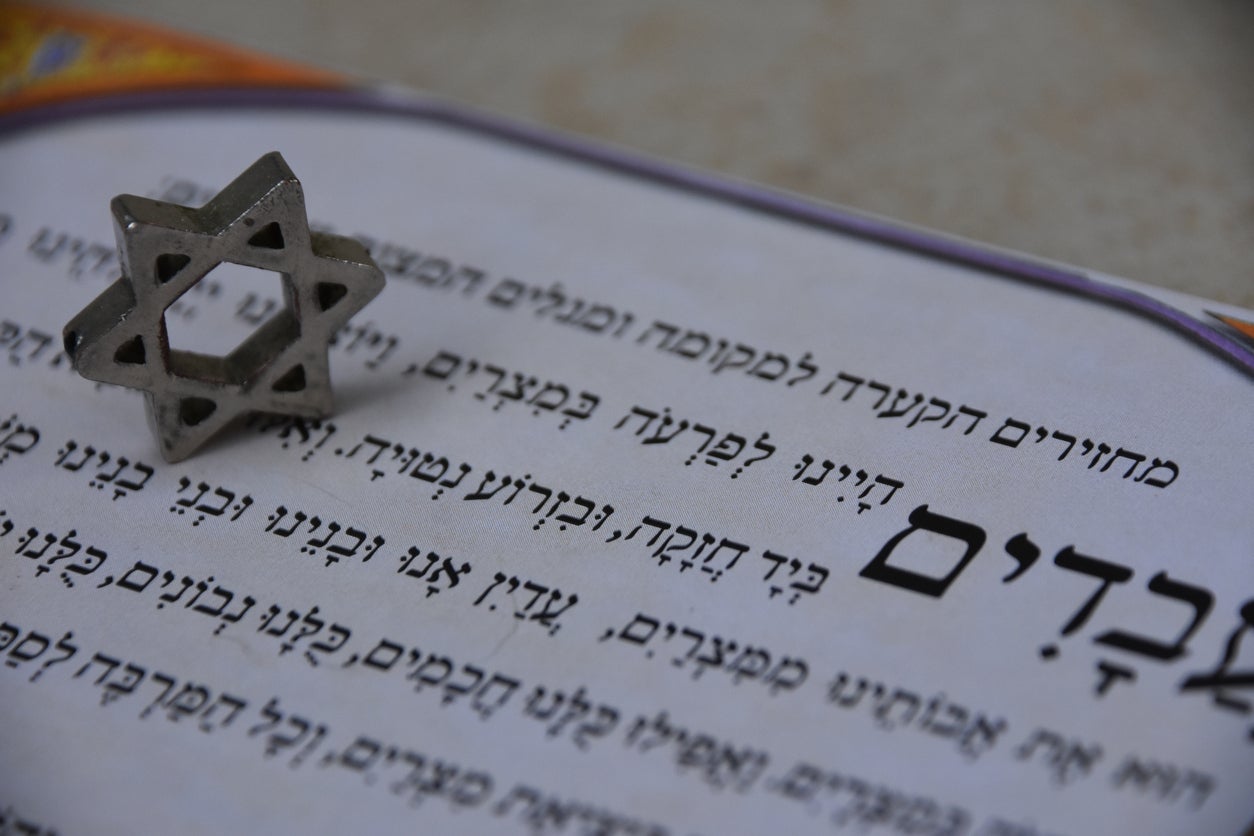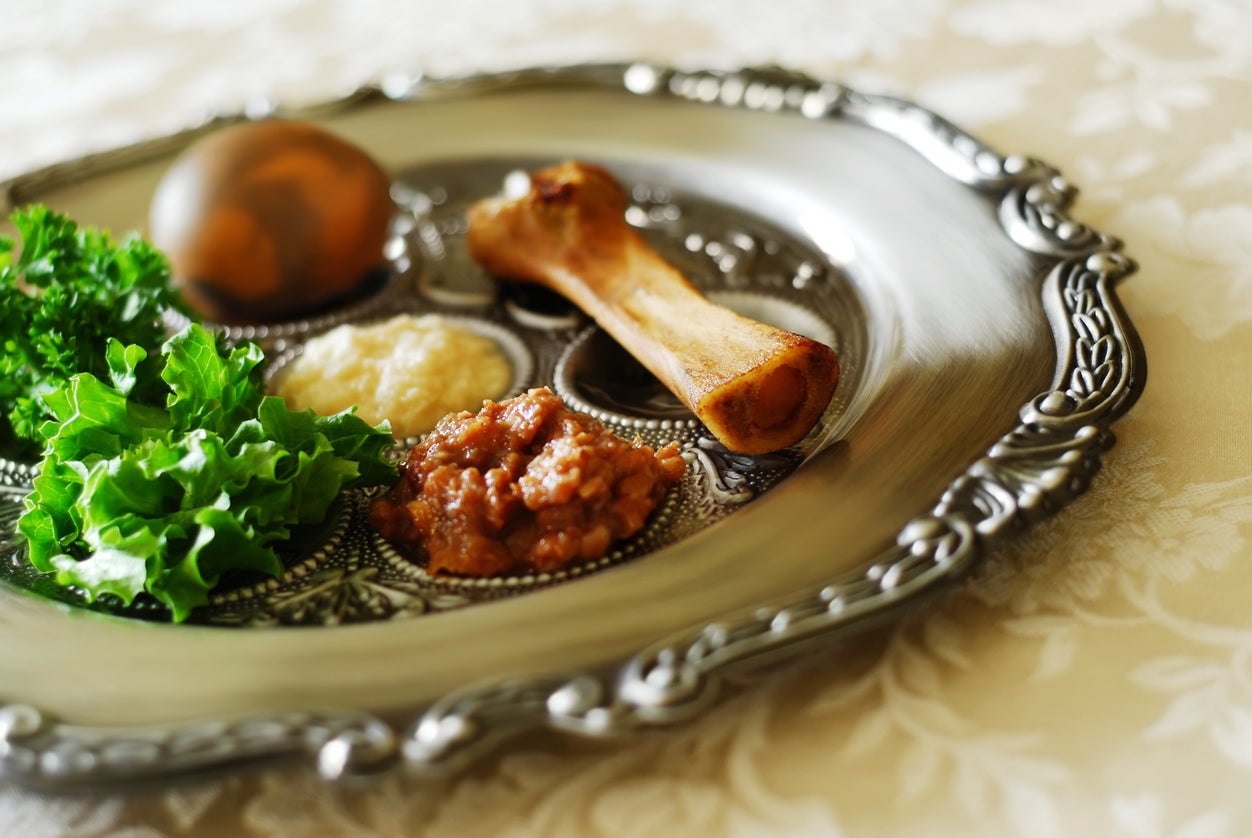What is Passover? Everything to know about the Jewish holiday
Ancient festival of Pesach usually lasts for eight days
Your support helps us to tell the story
From reproductive rights to climate change to Big Tech, The Independent is on the ground when the story is developing. Whether it's investigating the financials of Elon Musk's pro-Trump PAC or producing our latest documentary, 'The A Word', which shines a light on the American women fighting for reproductive rights, we know how important it is to parse out the facts from the messaging.
At such a critical moment in US history, we need reporters on the ground. Your donation allows us to keep sending journalists to speak to both sides of the story.
The Independent is trusted by Americans across the entire political spectrum. And unlike many other quality news outlets, we choose not to lock Americans out of our reporting and analysis with paywalls. We believe quality journalism should be available to everyone, paid for by those who can afford it.
Your support makes all the difference.Passover, otherwise known as Pesach in Hebrew, is regarded as one of the most important festivals in Judaism.
Every year, Jewish families celebrate the festival by gathering around the Seder table and recounting how Moses led the Jewish people out of Egypt following years of slavery.
This year’s Passover arrives at a difficult time for Jews, with conflict still raging in Gaza and worrying reports of antisemitism on the rise in many countries.
However, that same context promises to mean it will play a more important role than ever in bringing families and communities together.
For those wondering when precisely the festival takes place this year, what the history behind it is and how is it observed, here’s everything you need to know.
When does it take place?
Passover begins at sundown on Monday 22 April this year and is traditionally observed for eight days, ending on the evening of Tuesday 30 April.
In the Torah, the body of Jewish scripture, Passover begins on the 15th day of the month of Nissan, the day in the Hebrew calendar on which the Jewish people left Egypt thousands of years ago.

What’s the story of Passover?
During Passover, Jewish people remember how Moses freed the Israelites from slavery under the reign of the Egyptian Pharaohs, as recounted by the Torah.
Moses was raised as the adopted son of the Pharaoh’s daughter, who found him in an ark by a riverbank in Egypt.
Following the Pharoah’s orders to drown all male Hebrew children in the River Nile, Moses’s mother had sent him away in a basket of reeds in the hope of ensuring his survival.
As an adult, Moses discovered his true identity and was instructed by God to lead the enslaved Jewish people from Egypt to Canaan, which was regarded as the “promised land”.
Moses proceeded to ask the Pharaoh to let his people go, which the Pharaoh initially refused.
According to the Book of Exodus, Moses warned the Pharaoh that if he failed to free the Israelites, Egypt would be hit by a host of terrible plagues.
After the people of Egypt were subjected to 10 plagues, including blood, frogs, boils, locusts, darkness and the death of every firstborn son, the Pharaoh eventually relented and allowed the Jewish people to leave Egypt with Moses.
The Jewish people spent 40 years travelling in the desert before finally reaching the “promised land”.

Why is it called Passover?
Jewish people believe that when the Pharaoh initially turned a blind eye to the plagues wreaking havoc upon his people, God then inflicted the worst plague of all – the death of every firstborn male in Egypt. To protect the firstborn sons of the Israelites, God instructed Moses to tell the Jewish people to mark their front doors with lamb’s blood.
God then proceeded to “pass over” the houses that had been daubed with blood, thus sparing the firstborn Israelite sons from the deadly plague.

How is it celebrated?
During Passover, Jewish families come together for a traditional meal called the Seder, which means “order”, because everything is done in a particular order.
This order is followed by reading instructions in a book called the Haggadah.
The Seder plate includes a variety of foods, each of which is imbued with symbolic meaning.
The lamb bone represents the blood of the lamb that adorned the doors of the Jewish people as God passed over them; the roasted hard-boiled egg is a symbol of mourning; the maror (bitter herbs) represents the bitterness the Jews had to endure as slaves; the charoset (a sweet, brown concoction) represents the mortar used to build the Egyptian pyramids; and the dipping of parsley into salt water represents the tears of the enslaved Jewish people.
What is matzah?
According to the Book of Exodus, the Israelites left Egypt in such a hurry that their bread did not have time to rise.
This is why Jewish people eat unleavened bread during Passover, otherwise known as matzah.
It is traditionally viewed as the bread of the poor and is therefore consumed to remind Jewish people of the hardships their ancestors endured.
For seven or eight days after the first Seder night, Jewish people abstain from eating all sorts of leavened foods, including bread, cakes and muffins.
During the Seder night, many Jewish children play a game in which one piece of matzah, called the afikoman, is hidden.
The child who finds the afikoman at the end of the meal wins a prize.
What other foods and drink are consumed during Passover?
Some grains and other foods, such as beans, peas, corns, rice, chickpeas and sesame, are traditionally prohibited by some Jewish people during Passover. These are known as kitniyot.
However, many Sephardic Jews – Jewish people who can trace their ancestry back to the Iberian Peninsula during the early Middle Ages – continue to eat kitniyot on Passover.

How do Jewish people prepare for Passover?
As leavened goods are banned during the festival, the weeks leading up to Passover are traditionally spent cleaning.
Every nook and cranny is scrubbed to get rid of even the tiniest forbidden crumb that might lurk there.
Some say this tradition is the origin of the more widely known “spring clean”.
Many Jewish people use crockery during Passover that has been set aside especially for the festival.

Join our commenting forum
Join thought-provoking conversations, follow other Independent readers and see their replies
Comments